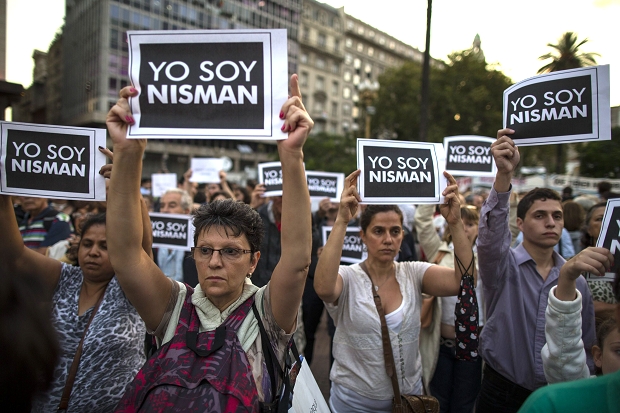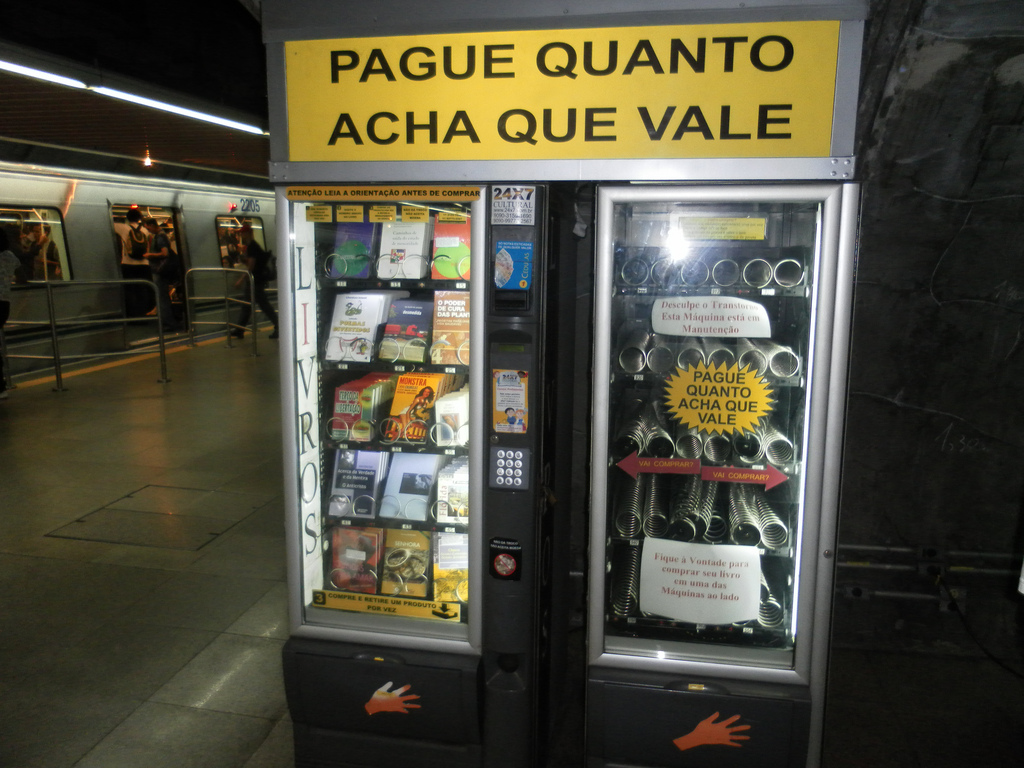
By Priyanka Ghosh
In 1994, a suicide bomber drove a car bomb loaded with ammonium nitrate fertilizer and fuel explosive mixture into the Asosciación Mutual Israelita Argentina (Argentine Israeli Mutual Association) building, killing 85 people and injuring many more in what what many viewed as an attack on the Jewish community in Argentina. The investigations that would follow were filled with problems including mishandling of the case and lack of proper procedures. However, in 2006 Argentine prosecutors Alberto Nisman and Marcelo Martinez Burgos formally accused the government of Iran and Hezbollah of the bombing. Within the last few weeks the case has taken a dramatic turn.
Last month, Nisman accused President Cristina Fernandez de Kirchner of conspiring with Iran to cover up the bombing in exchange for Iranian oil. On January 19, 2015, a week later and a day before he was set to testify in front of lawmakers about his new accusation, Nisman was found dead in his home. Nisman had filed a 289-page criminal complaint against the Argentine government, which contained transcripts of calls between Iranian and Argentine officials about the deal between the two governments. While government official vehemently deny these accusations, the timing of Nisman’s death has brought up new suspicions. It was also found after Nisman’s death that he had drafted a 26-page request for the arrest of President Kirchner and her foreign minister Hector Timerman. It was found in the Nisman’s garbage.
President Kirchner first announced that Nisman’s death was suicide, but later changed her position on January 22, claiming the event was staged by rogue spies who wanted to destabilize the government. She wrote in a letter posted on her Facebook page, “They used him while he was alive and then they needed him dead.” She claimed that he was a member of a group that has been trying to weaken her government. President Kirchner also claims that former intelligence official, Antonio Stiusso, had been manipulating Nisman into working against her. Kirchner has continuously claimed that there are outside forces working to undermine her and her government. In a televised address she pleaded the Argentine people to unite and not let this conflict rip them apart. She also proposed to a bill to dissolve the Secretariat of Intelligence, Argentina’s main intelligence agency as a method to reform it.
For the past years since the 1994 bombing, Nisman had been looking into the case with Stiusso, a man who played an essential role against Marxist rebels and leftists when the Argentine military government was still in place. Stiusso is said to be the person who provided Nisman with the evidence linking Kirchner with the Iranian deal. He is now being called to testify on his knowledge of Nisman’s death and on any information Nisman gave him. However, Argentine officials are unable to locate the ex-spy chief. He is now being labelled as a rogue actor working to bring down Kirchner’s government by accusing her of conspiring with the Iranians.
The people of Argentina have began responding to the situation. They clearly want justice for Nisman’s death. A large number of protestors gathered at the cemetery where he was buried demanding justice and the truth. Their campaign is called “Yo Soy Nisman,” a play on the “Je Suis Charlie” campaign following the Charlie Hebdo attack. Israel has also come out in support for Nisman, labelling him “courageous.” Israeli sources told The Daily Beast that they have taken Nisman’s accusations against Iran very seriously. They had informed the Interpol in 2006, which had then issued red notices against six Iranian officials. The Israelis argued this proves that the accusations have solid grounding and need to be taken very seriously. A source close to Israeli military intelligence spoke out about Israel’s suspicion that Iran had a heavy hand in Nisman’s death. Argentina is now at a critical point as its president and foreign minister are being accused of a major cover-up. The events that have followed the accusation have created a large cloud of suspicion.
The case has even come to the point that the journalist who reported on Nisman’s death, Damian Pachter, has now fled Argentina for Israel, claiming that he fears for his life.
All of this comes at critical time for Argentina, a country known for their lack of transparency and that is entrenched in corruption. Argentina ranks 105th out of 178 countries in the 2010 Transparency International Corruption Perception Index. In 2014, it ranked 107 out of 175 countries. In the 2014 Rule of Law Index, Argentina ranks 71 of 99 countries for Constraints on Government Powers, 47 out of 99 for Absence of Corruption and 56 out of 99 for Open Government.
“Assume that a high-ranking government officer is taking government money for personal benefit,” one Rule of Law Index survey question asks. “Also assume that one of his employees witnesses this conduct, reports it to the relevant authority, and provides sufficient evidence to prove it. Assume that the press obtains the information and publishes the story. Which one of the following outcomes is most likely?” In a telling sign, 60 percent of respondents said “An investigation is opened, but it never reaches any conclusions.” While the Nisman scandal is on a larger scale, it will be interesting to see whether this statement is proven true even at the highest of levels.

